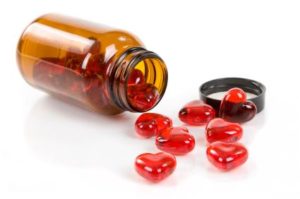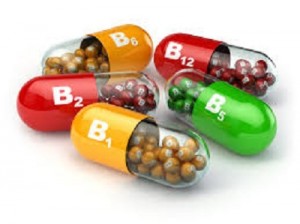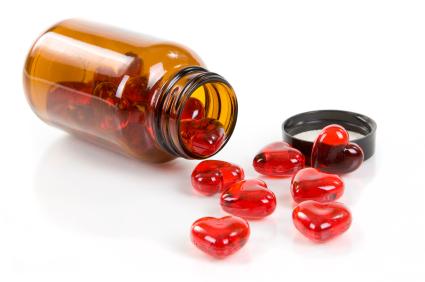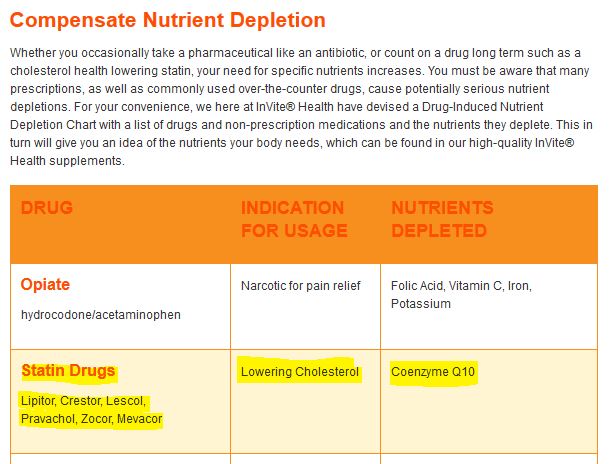In April of 2016, scientists from Cardiff University and Cultech Ltd set out to research the benefits of combining three ingredients – marine fish oil, cocoa extract and phytosterols – “as a means of preventing atherosclerosis, or “furring” of the arteries.”
 According to Science Daily, atherosclerosis is a major cause of heart disease that kills approximately one individual every 34 seconds and is responsible for about a third of all deaths worldwide.
According to Science Daily, atherosclerosis is a major cause of heart disease that kills approximately one individual every 34 seconds and is responsible for about a third of all deaths worldwide.
Published in the journal PLOS ONE, researchers found that combining these three ingredients helped “inhibit key processes associated with the progression of atherosclerosis”. Dr. Dipak Ramji from Cardiff University’s School of Biosciences, co-author of the study, reported, “A variety of active food ingredients have been shown to impart beneficial effects on cardiovascular disease. The study found, in cell-based models, that combining the three ingredients could, potentially, help halt the progression of atherosclerosis. The challenge now is to take our finding and examine whether they translate into humans.”
Fish Oil
The oils from fatty fish supply amazing health benefits. It’s true – fish is “brain food”. The key component in fish oil is their EPA-DHA (Omega-3) fatty acid content. Fish oils benefit every aspect of brain health, from mood regulation all the way to possible prevention of severe brain problems like stroke and dementia. They also support heart and circulation health, protect your vision, help maintain the digestive tract, and offer support for the kidneys, joints, lungs, and essentially every other tissue in your body. They improve and control immune function, support detoxification, adjust blood pressure and heart rate, and maintain lung function. In short, you cannot do without them – at least not for long.
For more information on Fish Oil, read Nicole Crane’s “Move Over Fish Oil! There’s a New Omega 3 in Town, and Its Name is Krill by Nicole Crane, B.S., NTP” by clicking here.
Cocoa
Chocolate in its natural form (without the additives) includes essential minerals such as magnesium, calcium, iron and zinc, as well as the Vitamins A, B1, B2, B3, C, E and pantothenic acid. It has polyphenols similar to those found in wine that offer excellent antioxidant protection. These beneficial antioxidants increase circulation to the brain and heart, improving healthy blood flow. They also help to reduce the blood’s clotting function, potentially decreasing your risk of blood and cardiovascular related health issues. Together, these agents help improve various areas of health such as circulation, energy and mood. Flavonols appear to be the substances in cocoa that are responsible for boosting heart health and keeping blood pressure in the normal range. These substances appear to improve the bioavailability of nitric oxide from the cells that line the inner wall of blood vessels.
For more information on Cocoa, read Nicole Crane’s “Cocoa: A Sweet Treat for Your Heart and Brain” by clicking here.
Phytosterols
Phytosterols, or plant sterols, are naturally occurring white-powder phytochemicals found in plants. Phytosterols are plant fats that are alcohol-soluble, but are insoluble in water. Phytosterols provide the raw materials needed for the body to manufacture hormones, thus they are beneficial to people with many types of health challenges. It can be difficult to intake a substantial amount of Phytosterols without supplementation. As Phytosterols often occur naturally in high-fat foods, many health-conscious consumers will intentionally bypass those foods. Others on a vegetarian diet may intake a higher amount of Phytosterols, but can still benefit from supplementation.
Based on evidence collected from scores of studies involving thousands of individuals, supplementing with at least 1.3 grams of plant phytosterol esters daily as part of a diet low in saturated fat and cholesterol, is suggested to significantly lower cholesterol levels. For the past fifty years, phytosterol esters have been studied in many different population groups under many circumstances and they have consistently lowered cholesterol in these individuals. Because of this, many public health authorities are beginning to include phytosterol esters as part of their recommendations.
For more information on Phytosterols, read Jerry Hickey, R. Ph’s article titled, “Simple Solutions for Cardiovascular Health” by clicking here.
Scientists hope that further research will give rise to additional successful projects in the future.
Source: https://www.sciencedaily.com/releases/2016/04/160425095352.htm





 According to Science Daily, atherosclerosis is a major cause of heart disease that kills approximately one individual every 34 seconds and is responsible for about a third of all deaths worldwide.
According to Science Daily, atherosclerosis is a major cause of heart disease that kills approximately one individual every 34 seconds and is responsible for about a third of all deaths worldwide.



